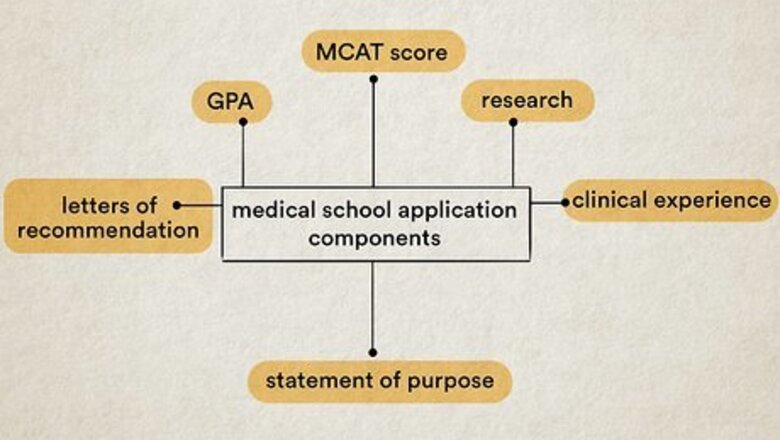
views
Gaining Insight on the Process
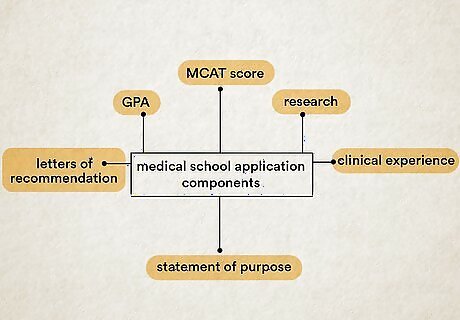
Understand the different components of the medical school application. There are many aspects to the medical school application: GPA, MCAT score, letters of recommendation, clinical experience, research, and others. It is important to know what will be expected by admissions committees when they select which students to interview.

Understand the timeline. The road to medical school varies person-to-person, but the application cycle is generally the same. Dr. Ryan Gray, MD writes a high-quality book that dives deep into the timeline and gives excellent, credible advice . There are two main application portals (with the exception of Texas): AMCAS (allopathic) and AACOMAS (osteopathic). The timeline is generally the same, but keep in mind if you plan on applying to both types of schools, you will need to submit both applications. The primary application for both allopathic and osteopathic schools opens at the beginning of May, with secondary applications getting sent out about one month after the primary application is received by the school. Invitations for interviews typically go out from October-January, but this can vary by about two months. Acceptance or waitlist spots vary significantly between programs, so it is best to check with each school you interview at to see what their relative timeline is.
Deciding Where to Apply
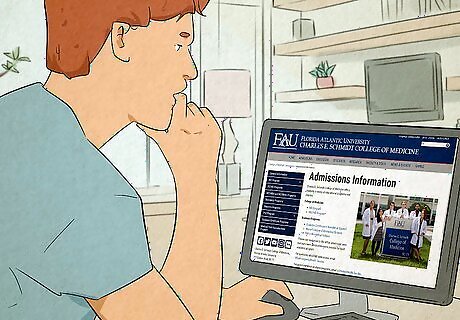
Research prospective programs. Do you want to stay in-state or go out-of-state? How important is attending a prestigious program to you? Does the school's mission statement align with your values? These are all questions to take into consideration when creating a list of prospective schools.
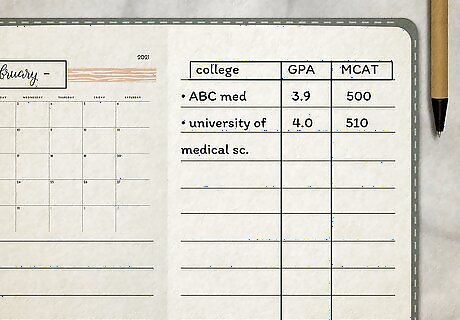
Make a list of each potential program's statistics. Each program will slightly vary in the required prerequisite coursework, so you want to make sure you take the necessary classes. Find out the average accepted applicant statistics. There are two main databases that give this information: MSAR (allopathic) and the Choose DO Explorer (osteopathic) give invaluable information pertaining to the type of applicant that a program accepts. Take note of the average MCAT score and GPA for the programs that you may consider. Applying to medical school is expensive and you do not want to waste time and money on applying to unrealistic schools!
Building the Application

Maintain a strong GPA. Although medical school admissions really are more holistic than ever, GPA is still one of the most crucial elements of an application. Some schools have GPA cutoffs (e.g. a minimum of 3.0 GPA) and will not send secondary applications to students who do not meet that cutoff. Prioritize your grades in your STEM-related classes. Many of these classes will compose your science GPA (sGPA), which is something that is heavily considered by admissions committees.

Take the MCAT. Whether you take the MCAT during your undergraduate years or during a gap year, this test is another extremely important component of the application. This score will get sent to every school you apply to and it will be used as a measurement of your academic capabilities.

Shadow different specialties. Although shadowing is fairly passive, it still assures admissions committees that you know what you are getting yourself into. The American Association of Medical Colleges (AAMC) website has a great guide on how to find shadowing opportunities. If you work or volunteer in a healthcare field, ask one of the physicians you work with if they will allow you to shadow them. If you don't already work in healthcare, cold-calling doctor's offices or asking your primary care physician if you can shadow them is a great place to start!
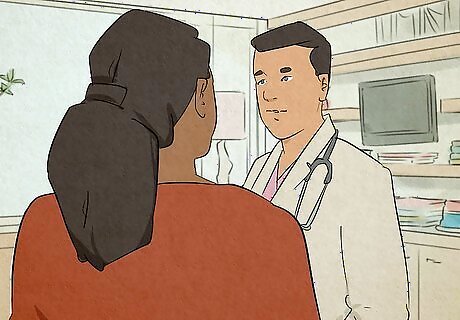
Gain clinical experience. Admissions committees like to see that you are already aware of what it is like to work in healthcare. Whether you are a medical scribe, EMT, patient care technician, or medical assistant, this is another critical aspect of the application. If you cannot dedicate the number of hours that most clinical positions require, try reaching out to a local hospital or doctor's office. Oftentimes, these places allow members of the community to volunteer once or twice a week. This is a great, low-time commitment way to build connections while still prioritizing your grades.

Pursue other personal interests. You are more than your future career! Yes, your MCAT score, GPA, and clinical experience all have a lot of weight when it comes to getting accepted into medical school; however, admissions committees also want to know who you are outside of medicine! If you play an instrument, enjoy painting, or love live music, these are all things that can be mentioned on your application. Plus, enjoying these hobbies can help prevent burnout.
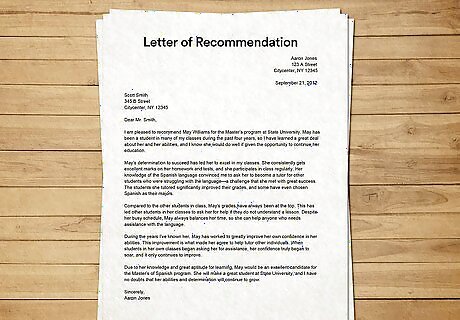
Gather letters of recommendation. This is another area that varies between schools. Schools usually have minimum/maximum letters that you can submit, so be sure to keep this in mind when you are obtaining them. Med School Insiders gives step-by-step instructions on the process of obtaining strong letters of recommendation. A general rule of thumb is 1-2 letters from a science professor and 1 letter from a non-science professor. In addition to professor letters, a strong letter from a physician who knows you very well is beneficial. You want to make sure that the people who write your letters can speak on your work ethic, quality of work, and dedication. Note: some osteopathic schools require a letter from an osteopathic physician.
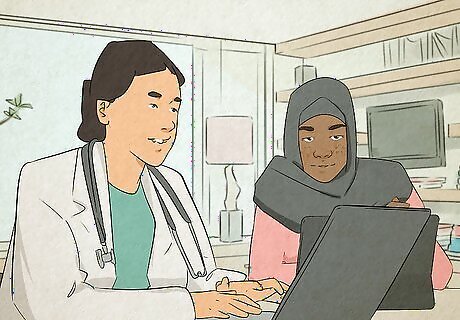
Conduct or assist with research. Medicine is an ever-evolving field and research is necessary to maintain the progression. Participating in research shows admissions committees that you are already familiar with the scientific method. Whether it is clinical or bench research, it is definitely something that many medical schools seek out in future students. Having a significant research background is a must if you plan on applying to public or private research universities. If you do not currently have any research connections, try speaking with one of your science professors to see if they know anyone looking to fill a research assistant position. Research can be both paid and unpaid, so make sure you take this into consideration prior to committing to a position.
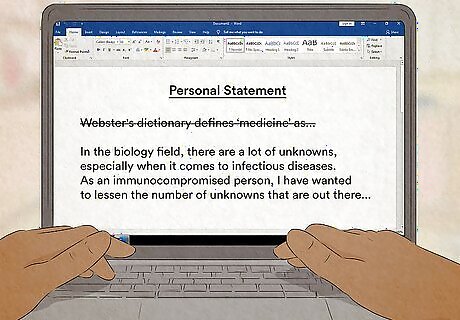
Write an excellent personal statement. The personal statement is just that- personal. In addition to letters of recommendation, this is a key component in helping the admissions committees understand who you are as a person. The personal statement is so crucial that Dr. Ryan Gray wrote an entire book on it! This is the place where you will elaborate on why you chose to become a doctor. Was it from a memorable experience with a patient during your clinical work? Did you fall in love with medical research and never looked back? Did you have your own memorable experience as a patient that led you to pursue medicine? Write about it! Allow yourself plenty of time to curate your personal statement. This is another aspect of your application that can either make or break you!




















Comments
0 comment